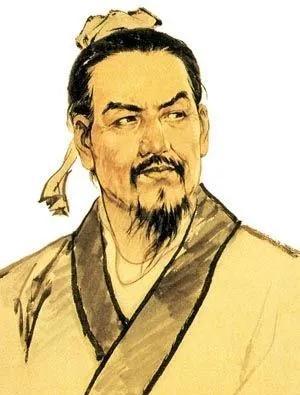Cultivating the ancients without expectation, not practicing the law is often possible, and discussing the affairs of the world, because it is prepared.
On August 5, 1973, Chairman Mao wrote a seven-sentence poem, "Reading the < Feudal Theory> Cheng Guo Lao", one of which was "Qin politics and law for hundreds of generations.". The so-called "Qin political law" is a set of governance systems and political systems built on the basis of legalist thought. "Han Feizi" is a collection of works by pre-Qin legalists.

Han Fei was a Korean at the end of the Warring States period and a master of the Jurist School. In Han Fei's youth, he witnessed the dismal situation of the Qin gradually encroaching on some Korean cities, determined to save the country, worshiped under the great Confucian Xun, and studied the way of governing the country together with Li Si, who later became the minister of state of Qin. Legend has it that Han Fei was a stutterer and was not an eloquent person, but his thoughts were integrated, and he not only received the true transmission of Xun Quan, but also extensively absorbed the essence of other schools, and integrated the shang martingale's law, the shen harmless technique, and the shen dao's potential.
After completing his studies, Han Fei returned to Korea and wrote to King Han many times, proposing the idea of a rich country and a strong army, and advocating the rule of law. Unfortunately, King Han did not adopt Han Fei's suggestion, let alone reuse him, but instead the King of Qin, Yingzheng, was wise and discerning, and after reading the "Lonely Anger" and "Five Beetles", he was like a treasure and vigorously promoted the doctrine of the Fa. As a Korean nobleman, Han Fei always had the heart of Han, which caused him to kill himself, and eventually died tragically in prison.
The twenty-volume Han Feizi, a total of fifty-five articles, was edited by later generations and mainly discussed Han Fei's Legalist thought. Its core can be summarized by three key words, namely "legislation", "law enforcement" and "change of law".
Regarding "legislation," Han Fei held that "if a husband is a master, he will be able to inspect a hundred officials, but he will not be able to do so in a day or a force." And the upper use of the eye is the lower ornament, the upper use of the satoshi is the lower accent, and the upper use of worry is the lower cumbersome. The first king regarded the three as insufficient, so the tongue was able to do so, and because of the number of laws, the reward and punishment were punished. That is to say, the monarch has limited energy and cannot personally supervise hundreds of officials, so it is necessary to legislate and reward and punish. At the same time, legislation must be appropriate and measured, that is, "its reward is enough to persuade the good, its might is enough to overcome violence, and its preparation is enough to complete the law." The ruler of the world, the one who has done a lot of work is honored, the one who is extremely powerful is rewarded, and the one who is full of affection is famous."
Regarding "law enforcement", Han Fei believes that monarchs need to lead by example and strictly enforce the law. "Those who follow the law are strong and the country is strong, and those who follow the law are weak and the country is weak", whether they are good at enforcing the law is related to the rise and fall of a country. "If it is difficult for the lord to establish a crime and fail to commit a crime, he will have a private grudge", and the law enforcement must be objective and strictly handled according to the law, and cannot rely solely on the likes and dislikes of the monarch. At the same time, regardless of whether they are high or low, everyone is "equal" before the law, that is, "if you pass the punishment, you will not avoid the minister, and you will not leave the favor behind."
Regarding the "change of law," Han Fei advocated "the religion of the first kings" and "teaching with the law as the teaching," that is, it is necessary to abandon the three generations of ritual music and implement the rule of law. He highly admired Shang Martin's "change of law" proposition, believing that it was precisely because of shang martingale's idea of changing the law that Qin Xiaogong "ruled the country and strengthened the army, and the land was wide and the lord was respected." At the same time, "the ancient times are not repaired indefinitely, and lawlessness is often possible" and "the world is different"; governing the country should conform to the development and changes of the times and conform to social reality, and the content of the law should not remain unchanged.
In addition to the idea of "law," Han Fei advocated the combination of "law," "technique," and "potential." "Technique" refers to the methods and means of rule, and "potential" refers to the power and power held by the monarch. The combination of the three allows the monarch to take power into his own hands.
Han Fei's jurist doctrine greatly promoted the development of authoritarian centralization. The Qin state, which implemented the doctrine of the Jurists, became stronger and stronger, and finally swept away the six eastern kingdoms and achieved the first great unification in Chinese history. The doctrine of the Jurists has also been implemented on a larger scale due to the establishment of the Great Unification Dynasty, and has become the background of Chinese history under the Confucian Fa for more than two thousand years, and its influence is far-reaching.